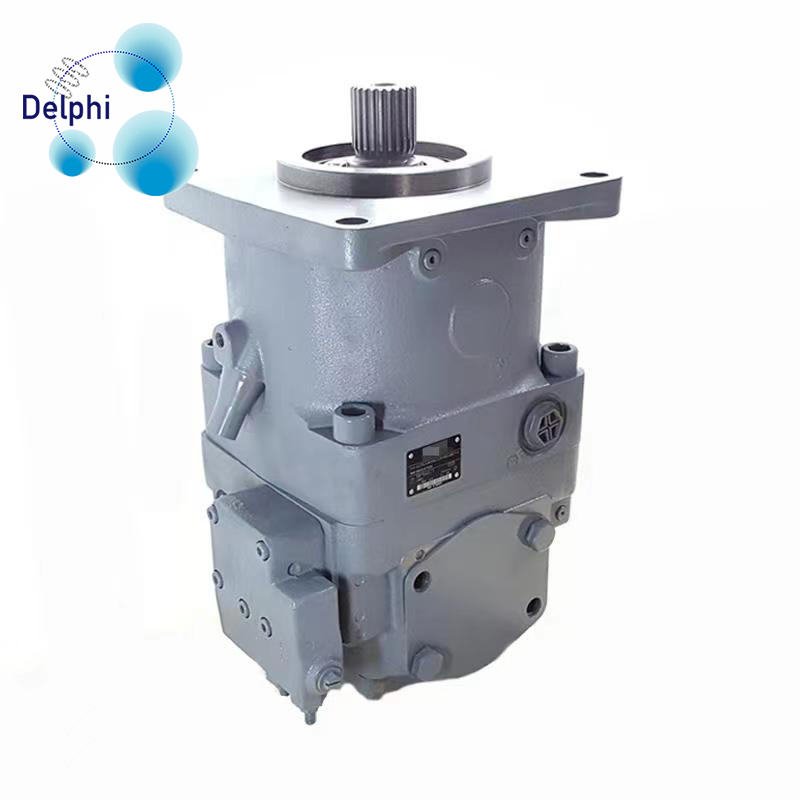When choosing hydraulic pumps, there are several factors to consider to ensure that the pump is suitable for your specific application.
Here are some key factors to consider:
Flow rate: The flow rate of the hydraulic pump should match the flow rate required by the hydraulic system. It’s important to ensure that the pump provides enough flow to meet the system’s requirements.
Pressure rating: The pressure rating of the hydraulic pump should match the maximum pressure required by the hydraulic system. It’s important to ensure that the pump can handle the maximum pressure without causing damage or failure.
Type of pump: There are several types of hydraulic pumps, including gear, vane, and piston pumps. The type of pump chosen will depend on the specific application requirements, such as the required flow rate and pressure.
Efficiency: The efficiency of the hydraulic pump should be considered, as a more efficient pump can reduce energy consumption and operating costs. It’s important to choose a pump with a high efficiency rating.
Size and weight: The size and weight of the hydraulic pump should be considered, as a larger or heavier pump may not be suitable for certain applications or may require additional support.
Noise level: The noise level of the hydraulic pump should be considered, especially in applications where noise levels need to be kept to a minimum.
Maintenance requirements: The maintenance requirements of the hydraulic pump should be considered, including how often the pump needs to be serviced and the cost of replacement parts.
Compatibility: The compatibility of the hydraulic pump with other components in the hydraulic system should be considered, such as the valves, cylinders, and hoses.
Overall, when choosing hydraulic pumps, it’s important to consider the flow rate, pressure rating, type of pump, efficiency, size and weight, noise level, maintenance requirements, and compatibility with other components in the hydraulic system. Consulting with a qualified professional can help ensure that the right hydraulic pump is selected for your specific application
The Advantages of Using hydraulic pumps
Hydraulic pumps offer several advantages that make them a popular choice for a wide range of industrial applications.
Here are some of the main advantages of using hydraulic pumps:
High power density: Hydraulic pumps can generate high levels of power in a compact package, making them ideal for applications where space is limited.
Precise control: Hydraulic pumps offer precise control over fluid flow and pressure, allowing for accurate and repeatable movement of hydraulic cylinders, hydraulic pumps motors, and other components in the hydraulic system.
High efficiency: Hydraulic pumps can be very efficient when properly designed and maintained, reducing energy consumption and operating costs.
Long lifespan: Hydraulic pumps are designed for heavy-duty applications and can handle high loads and continuous use. With proper maintenance, they can last for many years.
Versatility: Hydraulic pumps can be used in a wide range of applications, from small-scale machinery to large industrial equipment. They can operate in a variety of conditions, including high-temperature and high-pressure environments.
Easy to control: Hydraulic pumps can be easily controlled using simple on/off switches or more complex electronic controls, allowing for easy integration into automated systems.
Low maintenance: Hydraulic pumps have fewer moving parts than other types of pumps, reducing the need for maintenance and minimizing downtime.
Overall, hydraulic pumps offer several advantages that make them a reliable and efficient choice for a wide range of industrial applications. Their high power density, precise control, efficiency, long lifespan, versatility, ease of control, and low maintenance requirements make them a popular choice for many industries, including manufacturing, construction, and transportation.

